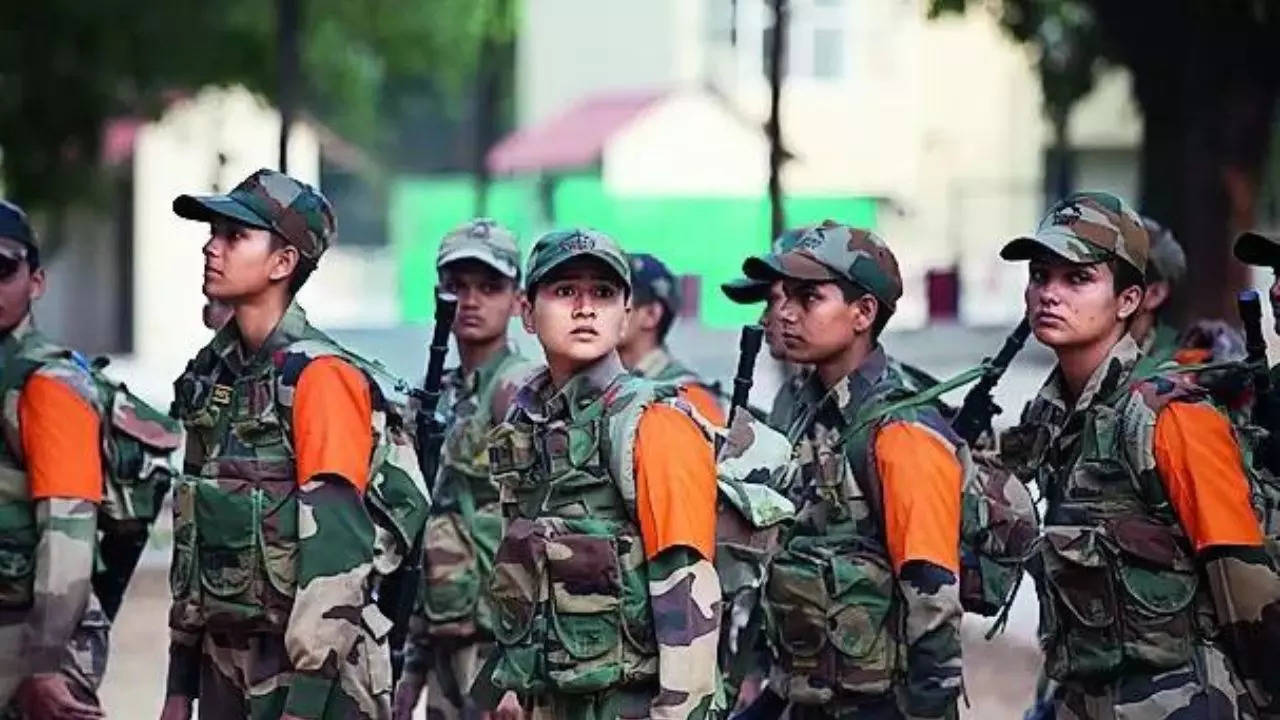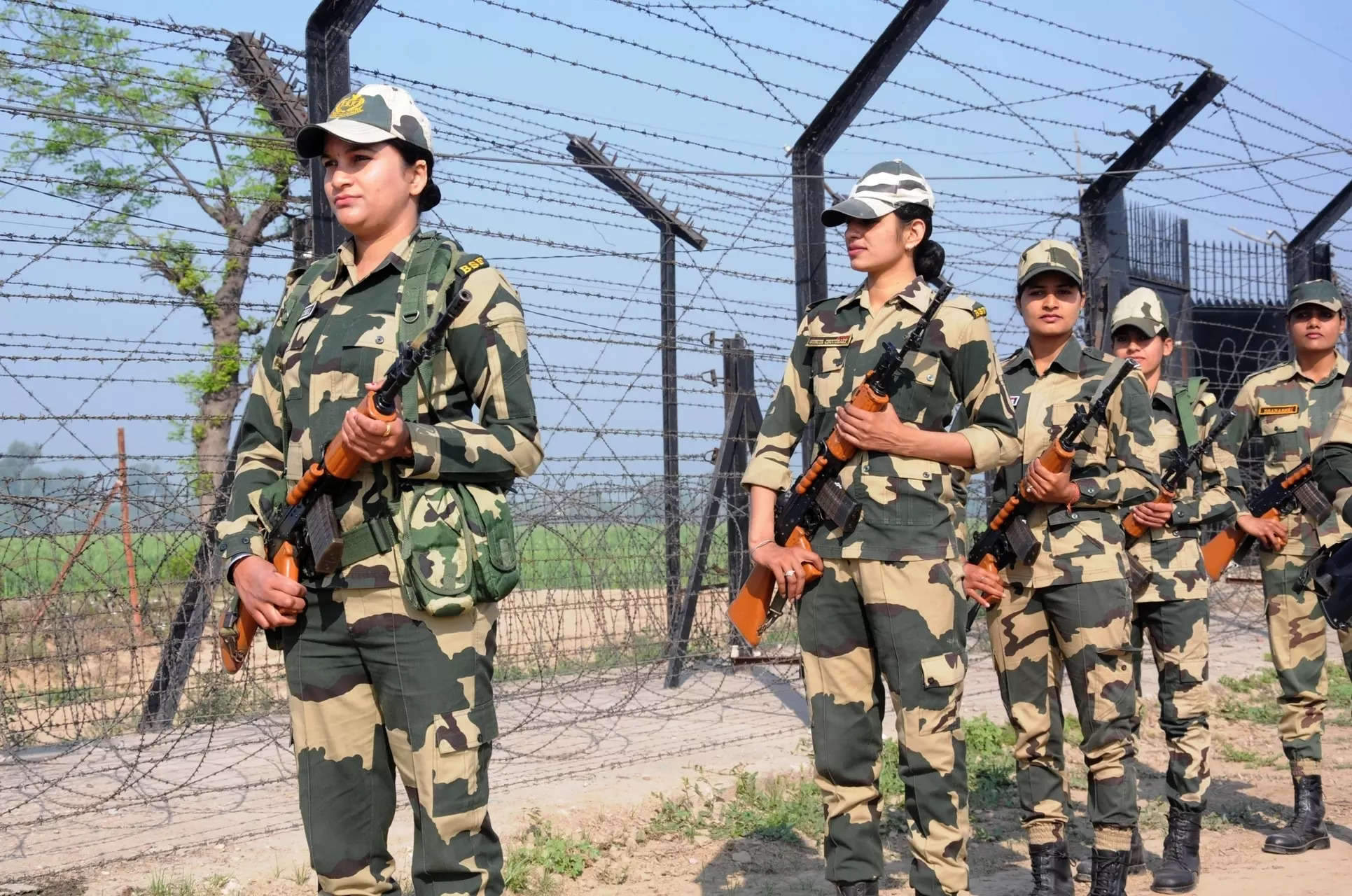Historic Decision: Women Soldiers, Sailors, and Air Warriors Granted Equal Maternity Benefits as Officers

Historic Decision: Women Soldiers, Sailors, and Air Warriors Granted Equal Maternity Benefits as Officers
In a groundbreaking move that marks a significant step towards gender equality in the Indian armed forces, Defence Minister Rajnath Singh has given his stamp of approval to a proposal that extends maternity, child care, and child adoption leaves for female soldiers, sailors, and air warriors, bringing them in line with their officer counterparts. This momentous decision is set to improve the work conditions of women in the military, enabling them to strike a harmonious balance between their professional duties and family life.
The decision, which has been met with widespread acclaim and support, comes as a result of extensive deliberations and recognitions of the unique challenges and responsibilities faced by women serving in the Indian armed forces. It reflects a commitment to fostering a more inclusive and diverse military while acknowledging the invaluable contributions of women who have chosen a career in the defense services.
This new policy, though long-awaited, symbolizes a turning point in the history of the Indian military, where women have been serving for decades but often faced disparities in their terms of service and benefits. The extension of maternity benefits to women soldiers, sailors, and air warriors at par with officers is not only a testament to the government’s commitment to gender equality but also an acknowledgment of the evolving roles and contributions of women in the modern armed forces.
Maternity Benefits: A Step Towards Equality
The decision to grant equal maternity benefits to women soldiers, sailors, and air warriors is a significant achievement. It rectifies a historical imbalance that had long persisted in the Indian military. Previously, female officers enjoyed more extensive maternity leave and related benefits compared to their non-officer counterparts. This disparity created a sense of inequity and hindered many enlisted women from fulfilling their dual roles as caregivers and service members.
Under the new policy, all women in the Indian military, regardless of their rank, will receive identical maternity benefits. This includes extended leave during pregnancy, postnatal leave, and support for child adoption. The move not only addresses gender disparities but also facilitates a more accommodating environment for women to serve their nation while nurturing their families.
The Ministry of Defence, in a press release, affirmed that this decision is an essential step towards fostering a more gender-inclusive military. By providing equal maternity benefits, it aims to attract and retain more women in the armed forces and enhance their career prospects. This, in turn, contributes to the overall effectiveness and diversity of the Indian military.
Supportive Responses
The decision to grant equal maternity benefits to women in the military has garnered a broad spectrum of supportive responses. Various stakeholders, including military personnel, women’s rights advocates, and the general public, have applauded this initiative as a milestone in promoting gender equality.
Many women in the armed forces have expressed their gratitude and relief at this progressive change in policy. Lieutenant Shalini, an officer in the Indian Navy, stated, “This decision is a game-changer for women like me. It removes a significant burden from our shoulders and allows us to focus on our professional duties without constantly worrying about the well-being of our families.”
Women’s rights organizations have praised the government’s decision as a significant step in dismantling gender-based discrimination. Sunita Verma, a leading activist in the field, remarked, “This move signifies the government’s commitment to advancing gender equality in the country. It sets an exemplary precedent for other sectors and institutions.”
The decision has also found resonance among the general public. Many citizens view it as a positive development that reflects the evolving role of women in Indian society. The sentiment is that by ensuring women in the military receive equitable benefits, the government sends a powerful message about the importance of women’s participation in all sectors of the workforce.

Challenges Faced by Women in the Military
The decision to grant equal maternity benefits is a crucial step in addressing the unique challenges faced by women in the military. Serving in the armed forces can be exceptionally demanding, requiring dedication, sacrifice, and resilience. However, female service members often grapple with additional challenges, particularly in balancing their professional and personal lives.
Maternity and childcare are areas where these challenges become particularly evident. Women in the military, like their civilian counterparts, often choose to start families. However, the military’s previous policy of unequal maternity benefits placed an undue burden on them. Female soldiers, sailors, and air warriors had to navigate the demands of their profession while ensuring the well-being of their families, which could be a daunting and exhausting task.
Moreover, the inequality in maternity benefits inadvertently discouraged many women from pursuing a long-term career in the armed forces. The fear of facing additional hurdles in balancing family and service obligations deterred potential candidates from joining the military. The result was a missed opportunity to harness the full potential of women in the defense services.
The Road to Gender Equality
The decision to grant equal maternity benefits to all women in the Indian military is not an isolated event but part of a broader effort to promote gender equality and diversity in the armed forces. In recent years, the government has taken several steps to enhance the representation of women in the military and improve their working conditions.
One significant milestone was the decision to induct women as fighter pilots into the Indian Air Force. This groundbreaking move, initiated in 2016, allowed women to fly fighter jets, breaking a longstanding gender barrier. Since then, many women have excelled in their roles as fighter pilots, proving that they are just as capable as their male counterparts.
The Indian Navy has also made strides in promoting gender equality. It has opened various branches to women officers, allowing them to serve on warships and submarines. This expansion of roles and opportunities has enabled women to contribute to the Navy’s mission more comprehensively.
Additionally, the Indian Army has initiated recruitment drives specifically for women, providing them with the opportunity to join as soldiers in various capacities. These measures not only promote gender inclusivity but also offer women the chance to pursue fulfilling careers in the military.
Benefits Beyond Maternity
While the extension of maternity benefits is a pivotal aspect of the new policy, it also addresses other critical areas affecting women in the military. In addition to maternity leave, the policy covers postnatal leave and support for child adoption. This comprehensive approach recognizes that women in the military have diverse needs and responsibilities, extending beyond maternity.
Postnatal leave is essential for the well-being of both the mother and the child. It allows women to recover after childbirth and attend to their newborns’ needs. By providing equal postnatal leave to all women in the military, the government acknowledges the importance of this period and promotes a supportive environment for new mothers.
Furthermore, the policy’s inclusion of support for child adoption is a progressive step. It recognizes that not all women in the military become mothers through childbirth, and some may choose to adopt children. By offering support for child adoption, the military ensures that all women, regardless of their path to motherhood, receive the same level of care and consideration.
A Win-Win Situation
The decision to grant equal maternity benefits to women soldiers, sailors, and air warriors is a win-win situation for both the military and the women who serve. It contributes to a more balanced and equitable work environment, which is essential for attracting and retaining talent. Women who serve in the military now have the assurance that their dual roles as caregivers and service members are equally valued.
For the military, this policy change opens the door to a more diverse and inclusive workforce. It expands the pool of talent from which the armed forces can recruit, enhancing the overall effectiveness and capabilities of the military. As women have demonstrated in numerous roles, they are equally competent and dedicated to serving their country.
The policy’s implications extend beyond the immediate benefits of maternity leave. It sets the stage for further measures that promote gender equality in the military, from career advancement opportunities to addressing issues related to workplace harassment and discrimination.

Conclusion
The decision to extend maternity, child care, and child adoption leaves for women soldiers, sailors, and air warriors at par with their officer counterparts is a historic and pivotal moment in the evolution of the Indian military. It reflects a commitment to gender equality, inclusivity, and recognition of the valuable contributions made by women in uniform.
This progressive policy not only ensures that women in the military are treated equitably but also encourages a more diverse and inclusive military, which is essential for maintaining the country’s security and defense. It sets a powerful example for other sectors and institutions in India, highlighting the importance of fostering gender equality and empowering women to pursue their ambitions.
With this decision, the Indian armed forces have taken a momentous step forward on the path to a more inclusive, diverse, and equitable future, where women and men stand shoulder to shoulder in serving their nation, undeterred by gender-based disparities. As the armed forces continue to evolve, it is clear that the contribution of women will play an increasingly critical role in securing India’s future.




